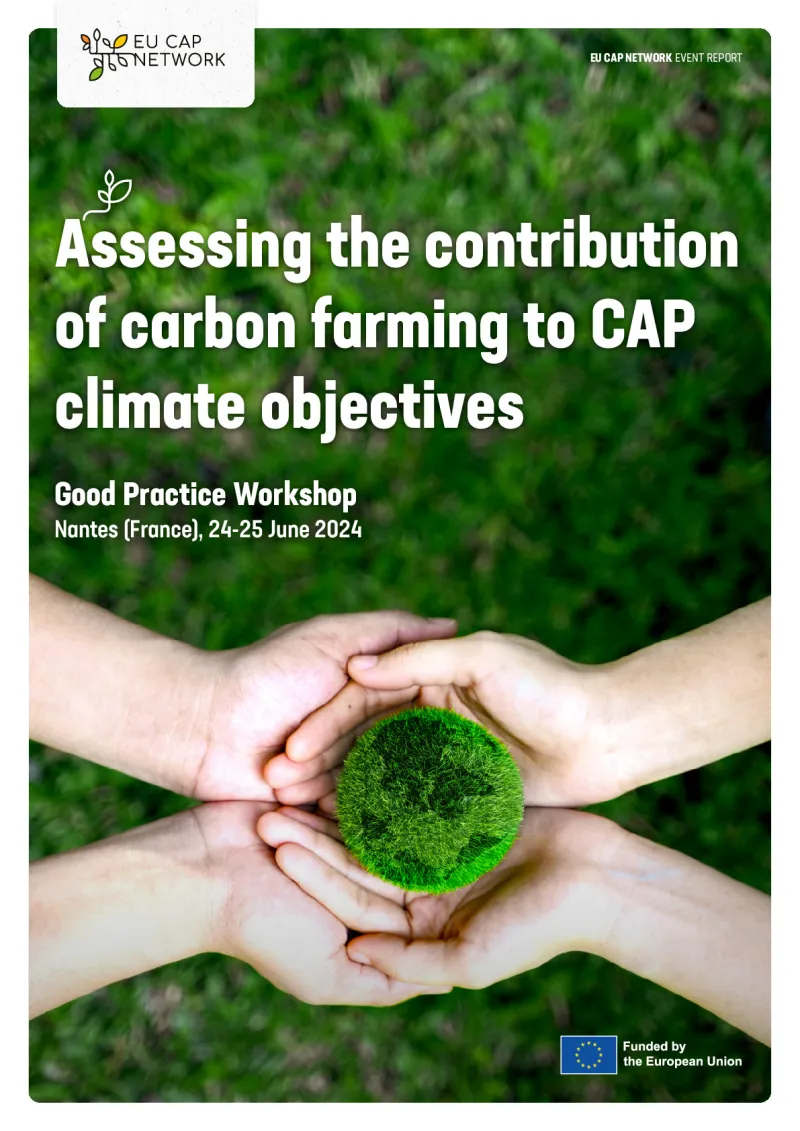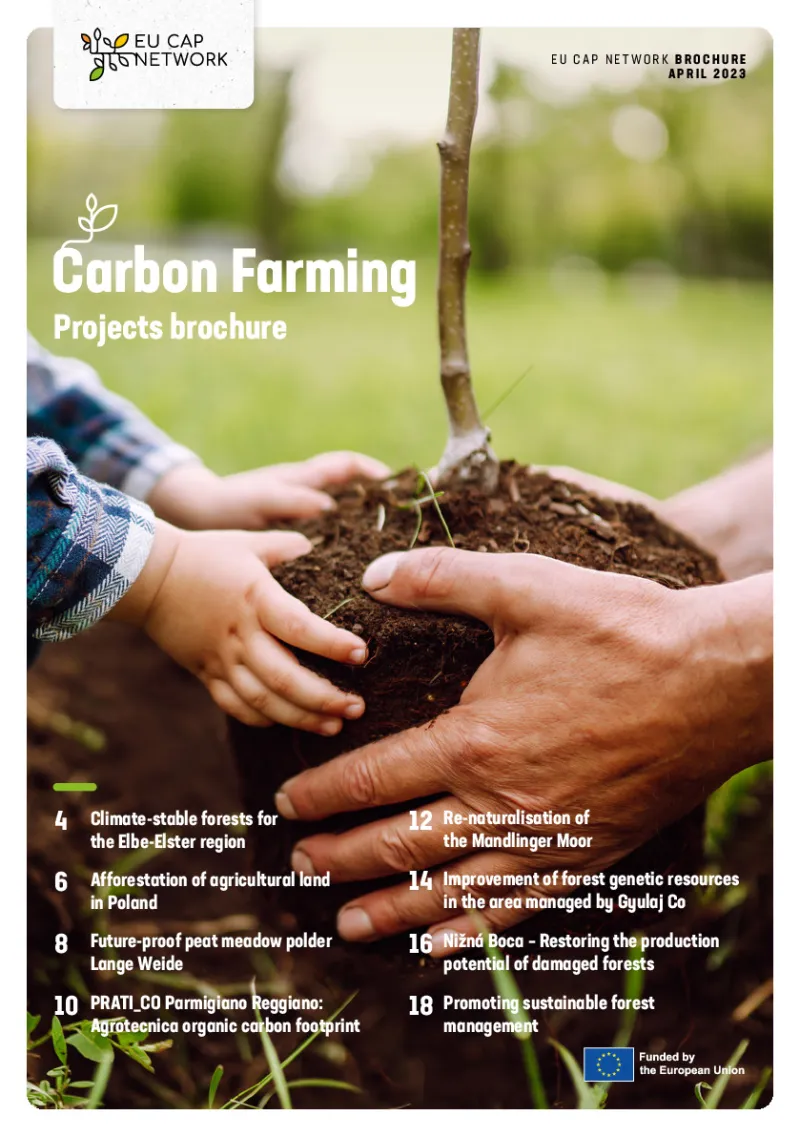Assessing the contribution of carbon farming to CAP climate objectives
The report summarises the main outcomes of the Good Practice Workshop ‘Assessing the contribution of carbon farming to CAP climate objectives’, organised on 24-25 June 2024 in Nantes, France.
- France
- 2023-2027
- Environmental impacts


More than seventy participants, representing Managing Authorities, the European Commission, and National CAP Networks, as well as evaluators, researchers, carbon certification experts, and other evaluation stakeholders, gathered on 24 and 25 June in Nantes, France, to share experiences on how to better assess carbon farming’s contribution to CAP climate objectives. The Workshop was organised by the EU CAP Network, with the support of the European Evaluation Helpdesk for the CAP, and hosted by the French Ministry of Agriculture and Food Sovereignty.
The main focus of the Workshop was to share Member States' experiences in evaluating carbon storage and sequestration.
During the first day, representatives from the Directorate-General for Agriculture and Rural Development (DG AGRI) and the Evaluation Helpdesk introduced the general framework for assessing the contribution of the CAP to carbon farming, clarified various concepts, expanded on the regulatory background, and shared an overview of relevant CAP interventions and farm practices.
Once the scene was set, experiences were shared from multiple EU-level projects in estimating greenhouse gas (GHG) mitigation in the agriculture and land sectors and how this could be applied at national level evaluations, followed by insights from Member States evaluations in relation to carbon farming and the CAP in 2014 – 2020, with practical examples from Sweden and Austria.
The second day looked at the role private sectors play in the green transition and the status of the European carbon market, as well as some lessons learnt from in-depth appraisals of evaluations on carbon farming’s contribution to the CAP.
Through multiple group and plenary discussions during the Workshop, several challenges were identified, such as using and quantifying baselines, selecting the right methodological approach, and how to assess causality and/or estimating the net effects of the CAP. Furthermore, the innovative potential of farmers was highlighted as an important aspect.
Results from the interactive group discussions also emphasised that coherence with other EU and national policies and private initiatives should also be considered. Efforts to promote carbon farming are not limited to the CAP; other EU funds and national policies are significantly and increasingly focusing on reducing GHG emissions, especially through actions in the fields of agriculture and forestry. Private sector certification schemes, that sometimes cover the whole agri-food chain, constitute incentives for farmers to adopt carbon farming techniques, and could be aligned with the EU Carbon Removal Certification Framework.
Participants concluded that the CAP will play a crucial role in achieving climate neutrality, and therefore evaluations related to carbon farming should not be limited to green architecture. Although the first step would be to identify interventions and farm practices that increase soil organic carbon, other interventions should also be assessed, such as innovation, training and non-green investments.
Author(s)
EU CAP Network supported by the European Evaluation Helpdesk for the CAP

